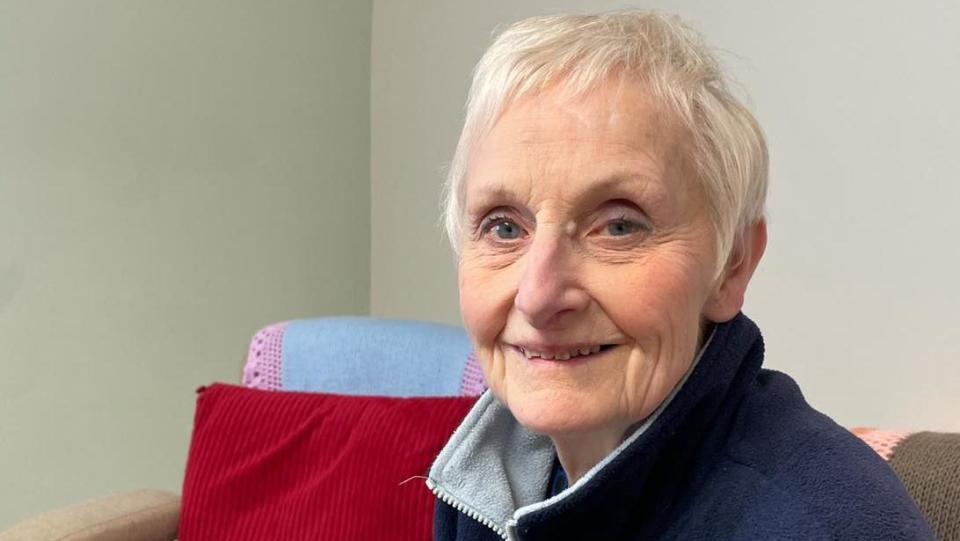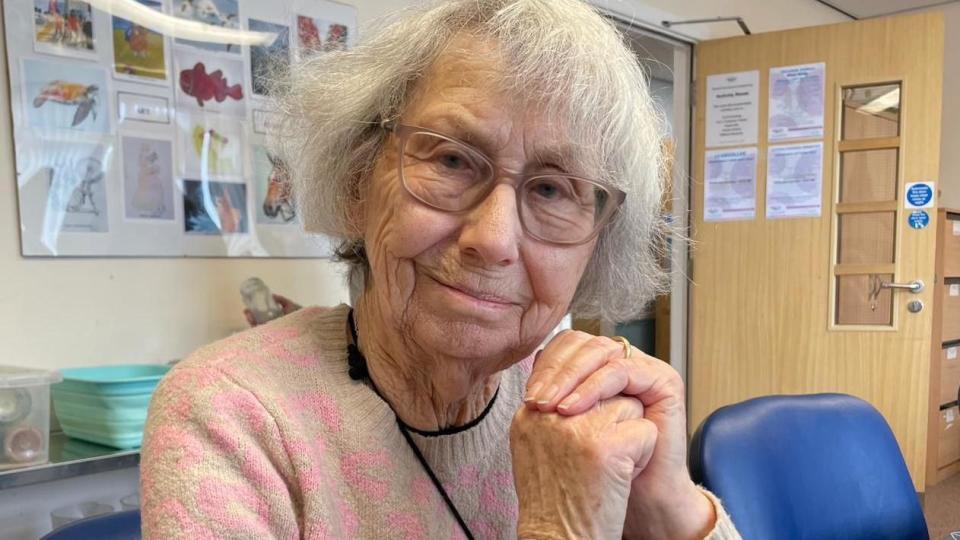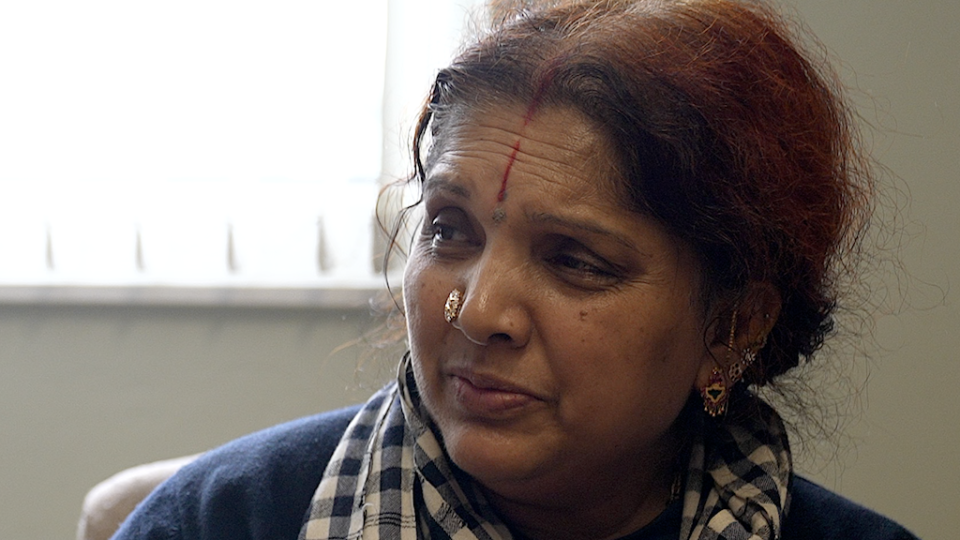Pensioners' fears over paying income tax

Charities are reporting heightened concern among pensioners who fear being dragged into paying income tax.
The state pension rose by 8.5% in early April, but the knock on effect is that hundreds of thousands of pensioners on lower incomes have been drawn into paying income tax.
Most pensioners will pay more tax this year as a result, owing to frozen tax thresholds.
Age UK and Independent Age both say they have seen an increase in calls to their helplines in recent weeks from pensioners confused about the issue.
Who will pay more tax?
If your sole income is a state pension then nothing should change for you. The increase for a single person brings the maximum state pension to £11,500 - still below the threshold when income tax begins to be taken at £12,570.
Additional Pension Credit payments are tax-free, so do not count towards the personal allowance of income before tax is paid.

Audrey Cook, who lives in Bromborough, lives off her state pension and knows that another increase next year could tip her over into the category of having to pay income tax.
“It feels like a double-tax,” the 90-year-old said. “We paid tax when we worked, we didn’t get big salaries, and now we’re paying on our little bit of pension which is not a lot. And with the cost of living you can’t keep paying extra all the time. The tax threshold should increase.”
Wages and workplace pensions
About 80% of pensioners get some extra income alongside the state pension such as from a private or workplace pension, or through a job. The likelihood is that most people in this category will have to pay income tax as their total income will be above £12,570.
A private pension or wage is taxed automatically at source through a PAYE number. That means the tax is taken out before the money even hits the bank account.
Tax codes should be checked to make sure the correct rate of tax is being paid, because it should only be 20% on anything that puts total income above £12,570.

On the Wirral, in Age UK's craft class, Pam Carrington has already noticed a difference. As a widow she gets a small private pension of her husband’s alongside her own state and private pensions.
"They’ve taken £2 out of it," she said. “I used to get £7 a month and now I just get £5 a month from that pension.”
Her friend Saritha Rao agreed that even a small reduction could make a difference.
"Every copper counts. I try to stretch the budget as far as I can but there’s only so far you can stretch before you break," she said.
Joanna Elson, chief executive of Independent Age, said: “For older people on a low income who are facing a daily struggle to make ends meet, any potential reduction in income is incredibly worrying.
“Many of the people calling are confused about what tax they will have to pay, and many who are already living on a low income are worried about being worse off because they now have to pay tax.”
Another charity, Age UK, said it had also received more calls about frozen tax thresholds.
Sally West, a policy manager at the charity, said the benefit of recent National Insurance cuts did not apply to pensioners because they did not pay it.
Extra income
Earnings above the personal allowance from something else such as rental income as a landlord, should be declared through self-assessment forms as usual, according to HM Revenue and Customs (HMRC).
A bigger bill should be expected this financial year, as the state pension increase will have pushed up overall income, but the process of paying that tax will remain the same.
Those who earn extra income, perhaps through interest on savings or investments that is not taxed through a PAYE number, may never have filled in a self-assessment before.
HMRC said there was no need to complete a self-assessment. Instead, at the end of the tax year they would be sent a Simple Assessment, which is essentially a bill for the tax owed.
It would arrive next July and should be paid by the following January.
A very small percentage of pensioners are likely to fall into this category, but Clare Merrills, from HMRC, recognised that having an unknown bill hanging over you was a concern.
“They really don’t need to worry,” she said. “If there is any tax due we will contact them directly in maybe the June or July after the end of the tax year explaining exactly what they need to do.”
HMRC also said people could contact advisers, especially if they were going to struggle to pay, as the money could be collected in smaller instalments.
A Treasury spokesperson told the BBC: “Pensioners do not pay any income tax if their sole income is from the full new state pension, and we are standing by our commitment to maintain the Triple Lock by raising the basic state pension to almost £170 a week, after the largest ever cash increase last year.
“As the Resolution Foundation has said, the introduction of the Triple Lock and New State Pension means pensioners are on average £1,000 better off than if the state pension had just risen with earnings.”
